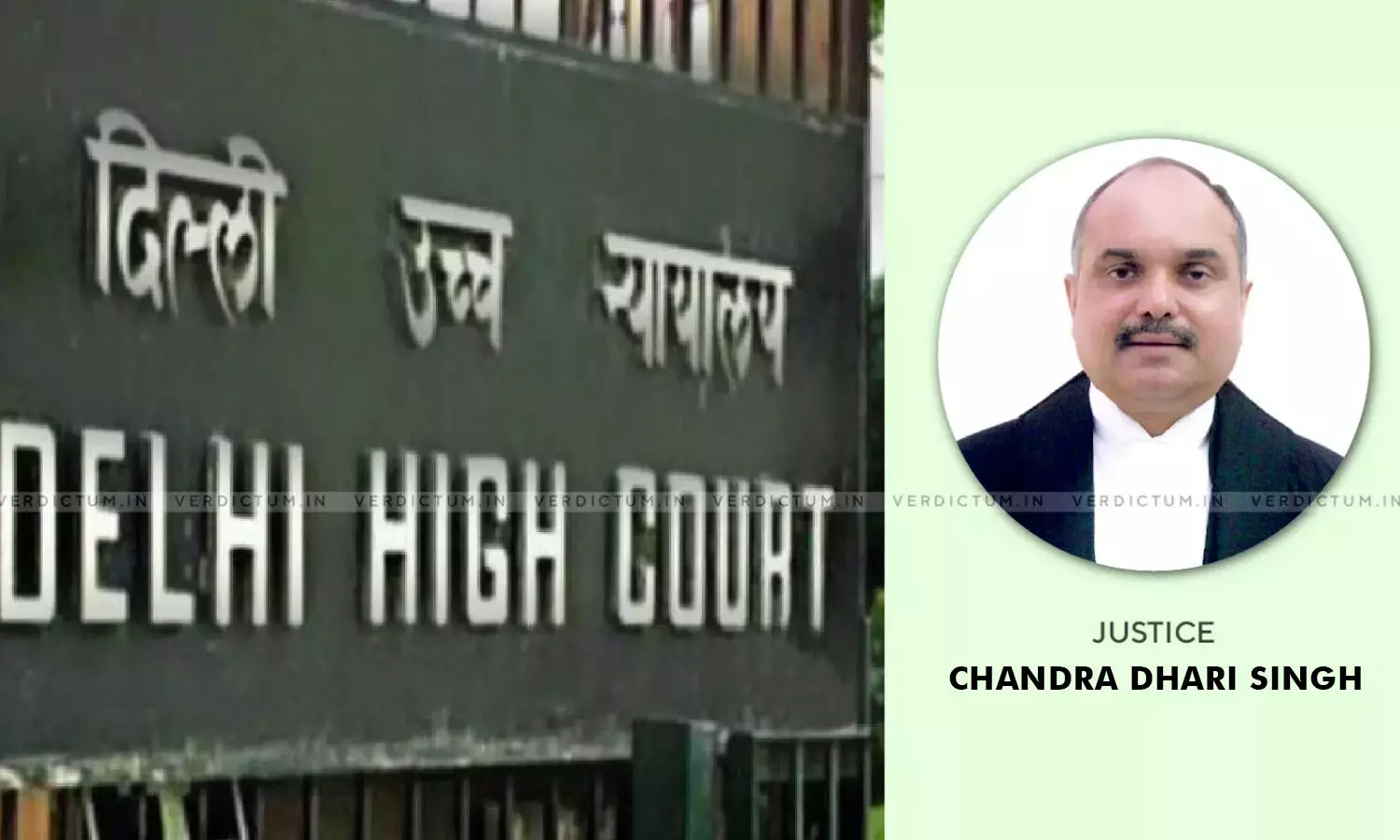
Non Adjudication Of Issue That Goes To Root Of Matter Renders Arbitral Award Against Public Policy, Cannot Be Sustained: Delhi HC
 |
|The Delhi High Court observed that the non-adjudication of an issue which goes to the root of the matter makes the arbitral award against the public policy of the country as it amounts to the violation of the principles of natural justice.
In that context, the Bench of Justice Chandra Dhari Singh observed that, "The consideration of mandatory national laws is important to ensure that an award is not opposed to the public policy of the country and therefore can be made enforceable. The mandatory national laws include the basic notion of morality and justice, therefore, the Courts need to determine whether an award is adherent to the said principles as included within the public policy."
In a similar vein, it was also noted that, "no opportunity was given to deal with an argument which goes to the root of the case or findings based on evidence which go behind the back of the party and results in a denial of justice to the prejudice of the party, the same would amount to violation of principle of natural justice."
Counsel Ankur Mittal and Counsel Raushal Kumar appeared for the petitioner, while Counsel Navin Kumar, along with others, appeared for the respondent.
The petitioner, a government undertaking responsible for constructing national highways, invited bids for the construction of a highway bypass in Madhya Pradesh. The respondent, a Korean construction company, won the bid and entered into a contract with the petitioner. Disputes arose regarding work completion and payments, leading to arbitration. Meanwhile, the respondent submitted a draft final statement for payment. The petitioner raised concerns about the work completion and sought clarification. The respondent assured compliance but later initiated arbitration. The tribunal ruled in favor of the respondent, considering a payment certificate as final, and directed the petitioner to make remaining payments. The petitioner challenged this decision, questioning its legality and conformity with public policy.
The High Court observed that even though the Tribunal appreciated the submissions advanced by the petitioner concerning the discrepancies and fallacies in the certificate, the non-adjudication of the same resulted in a violation of the rights of the petitioner, therefore, the said situation was a clear violation of the principles of natural justice.
It was further observed that, "the petitioner has made out a case to prove that the impugned award suffers from illegality as the same is against the public policy of this Country. There are multifold reasons for the same, firstly, the Tribunal erroneously directed payment of the due amount on the basis of same despite holding that the certificate dated 31st August, 2014 was not a final payment certificate, a conclusion contrary to its own findings. Secondly, the non-adjudication of the contentions raised by the petitioner is a clear violation of the principles of natural justice and thirdly, the contrary opinions given by the same Tribunal in similar factual scenario creates a bizzare situation and the same cannot be permitted under the law."
Holding that the award was in contravention of the settled position of law, and therefore against the public policy of the country, the Court set aside it aside. The petition was allowed, and the dispute was remanded back to the Arbitral Tribunal for fresh adjudication.
Appearances:
Petitioner: Counsels Ankur Mittal, Raushal Kumar
Respondent: Counsels Navin Kumar, Rashmeet Kaur, Aarti Mahto, Bhagya Ajith
Cause Title: National Highway Authority of India vs MS Ssangyong Engineering & Construction Co. Ltd.
Click here to read/download the Judgment